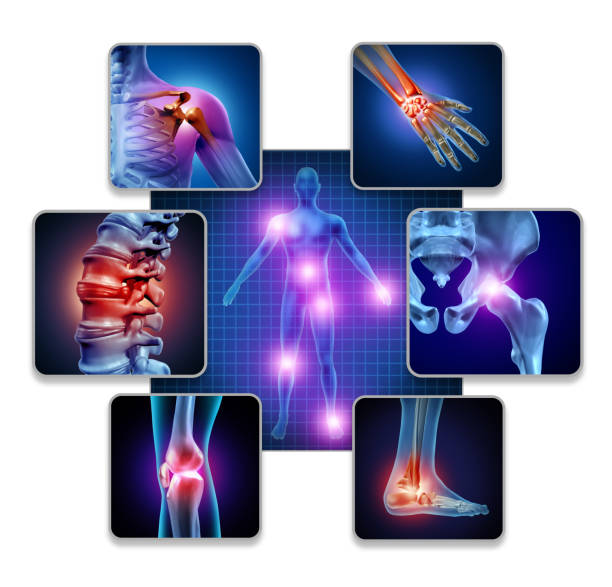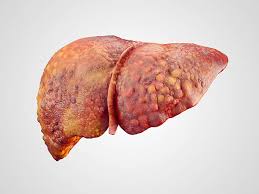What You Need to Know About Inflammation and Its Long-Term Effects

Inflammation is the body's natural response to infection, injury, or injurious stimuli. Acute inflammation is a part of the body's normal healing process, but chronic inflammation will result in very serious health conditions. Understanding why inflammation exists, how it impacts the body, and how it is controlled is essential to maintaining long-term health.
In this article, we are going to tell you about what inflammation is, how it impacts the body, and how to treat it in the proper manner, i.e., medical treatment such as nimulid tablet uses and nimesulide usage in removing inflammation.
Understanding Inflammation: Acute vs. Chronic
Inflammation is a response of the body's immune system to injury or infection. It is classified into two broad categories:
- Acute Inflammation: This is a quick response to damage or infection, such as redness, swelling, and pain. It helps the body heal and usually goes away in a couple of days.
- Chronic Inflammation: This is inflammation that lasts for weeks, months, or years. It has many potential health problems, such as heart disease, diabetes, arthritis, and autoimmune diseases.
Common Causes of Chronic Inflammation
There are numerous causes of chronic inflammation, including:
- Poor Diet: Consuming too much processed food, sugar, and unhealthy fats triggers inflammation.
- Physical Inactivity: Lack of physical activity fosters inflammation and the onset of chronic diseases.
- Obesity: Having too much body fat, especially visceral fat, secretes inflammatory chemicals.
- Chronic Stress: Chronic stress increases cortisol levels, leading to inflammation in the long term.
- Autoimmune Disorders: Autoimmune conditions like rheumatoid arthritis, lupus, and psoriasis cause the immune system to strike tissues, thus causing prolonged inflammation.
- Infections: Infections like hepatitis or infections caused by bacteria are well known to cause extended inflammatory responses.
Long-Term Effects of Chronic Inflammation
Chronic inflammation severely affects the general well-being of a person. Some of the long-term effects of chronic inflammation are:
- Cardiovascular Diseases: Inflammation continues to distress the blood vessels, thereby increasing heart disease and stroke risk.
- Diabetes: Inflammation interferes with the functioning of insulin, causing insulin resistance and type 2 diabetes.
- Arthritis and Joint Destruction: Chronic inflammation of the joints leads to diseases like rheumatoid arthritis, causing stiffness and pain.
- Digestive Diseases: Inflammation in the digestive tract consistently leads to diseases like Crohn's disease and irritable bowel syndrome (IBS).
- Cognitive Impairment: Inflammation has been linked to neurodegenerative disorders like Alzheimer's and Parkinson's.
Effective Management of Inflammation
Reducing inflammation needs a combination of home remedies, lifestyle modifications, and drugs. Some of the best methods of keeping inflammation under check are mentioned below.
1. Medications to Reduce Inflammation
- Nimulid Tablet Uses: Nimulid tablets containing nimesulide are commonly used to relieve inflammation, pain, and fever. It is often prescribed for many conditions like arthritis, musculoskeletal pain, and surgical inflammation.
- Non-Steroidal Anti-Inflammatory Drugs (NSAIDs): Over-the-counter NSAIDs like ibuprofen and aspirin control inflammation and relieve pain.
- Corticosteroids: Corticosteroids are employed in severe cases to suppress inflammation and treat chronic disease.
2. Anti-Inflammatory Diet
Diet plays a significant role in controlling inflammation:
- Fruits and Vegetables: Vitamins and antioxidants in them neutralize inflammatory responses.
- Whole Grains: Brown rice, quinoa, and whole wheat are less inflammatory compared to processed grains.
- Healthy Fats: Omega-3 fatty acids found in fish, nuts, and olive oil combat inflammation.
- Turmeric and Ginger: Spices with natural anti-inflammatory compounds that can be used in food or consumed in the form of tea.
- Avoid Processed Foods: Limit sugar, trans fats, and inflammatory food snacks.
3. Lifestyle Modifications to Minimize Inflammation
- Exercise: Engage in regular exercise in the form of swimming, yoga, or walking, which is potent in lowering inflammation while promoting general health.
- Stress Reduction: Engage in meditation, breathing, and relaxation techniques for reducing inflammation due to stress.
- Rest: Lack of sleep aggravates inflammation, therefore, have 7-9 hours of good sleep each night.
- Hydration: Adequate water consumption allows toxins to be flushed out of the body and keeps cellular processes functioning.
4. Natural Anti-Inflammatory Solutions
- Green Tea: Rich in antioxidants, green tea suppresses inflammation and guards cardiovascular health.
- Aloe Vera: With its soothing effect, aloe vera prevents inflammation of the skin and digestive tract.
- Essential Oils: External use of eucalyptus and peppermint oil prevents pain due to inflammation.
- Epsom Salt Baths: Soaking in warm water with Epsom salt prevents inflammation in muscles and joints.
Preventing Chronic Inflammation
Prevention of chronic inflammation includes the following steps:
- Maintain Healthy Weight: Excess weight produces more inflammation, so exercise and consume a healthy diet.
- Avoid Smoking and Alcohol: These are causes of chronic inflammation and increase the risk of disease.
- Control Health Conditions: If you have diabetes, heart disease, or autoimmune diseases, work closely with your doctor to keep symptoms in check.
- Get Regular Check-Ups: Regular check-ups on health detect and resolve problems related to inflammation early in life.
Conclusion
Inflammation is a natural defense process of the body, and chronic inflammation is not healthy. With the knowledge of its causes and effects, you can take proper steps to prevent and control it. By lifestyle change, dietary change, or medication like Nimulid tablets and nimesulide, controlling inflammation in a proper manner can be a doorway to a pain-free healthy life. In case of chronic inflammation, consult a doctor for adequate diagnosis and management.
Note: IndiBlogHub features both user-submitted and editorial content. We do not verify third-party contributions. Read our Disclaimer and Privacy Policyfor details.






